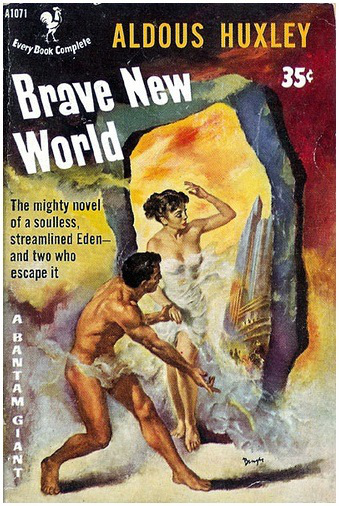The invaluable Leon Kass, former chairman of the President’s Council on Bioethics (back when there still was a President’s Council on Bioethics during the presidency of George W. Bush, bioethics not having been a topic of much interest the last eight years), coined the phrase “the Immortality Project.” He was describing the goal of some zealous practitioners in the scientific community who wish to extend human life indefinitely, whether in physical form or by uploading what they consider our “minds” to the non-heavenly “cloud.” Whether that would be “eternal life” or a human manifestation of hell – life without a body; sorrow and sufferings without end; no rest; no telos or ultimate goal, just endless, dull perpetuation of. . .what? – I’ll leave for you to decide.
But there is another, logically-necessitated-but-not-immediately-evident side to “the Immorality Project” suggested the other day by America’s own Socrates, the irrepressible and seemingly unstoppable Fr. James Schall, S.J. How many other army vets from 1946 do you know who are still writing and lecturing on philosophy every day? I saw him hundreds of miles from his West Coast retirement community at the University of St. Thomas in Houston, Texas, where he was doing the university the honor of lecturing and accepting its Aquinas Medal.
Schall, ever the one to point out things obvious to those with common sense, mentioned in passing that, “If we keep people alive, then we don’t need births. . .or sex.” Schall was on one of his delightful digressions – I’ve always thought a great speaker is one whose digressions are as interesting as the talk itself, if not more so. So after this he went back to his intricate and fascinating series of comments about Pope Benedict, Spe Salvi, the Marxists Adorno and Horkheimer, Plato (always Plato!), justice, immortality, and the resurrection of the body. (You have to strap yourself in for a Schall talk; great thoughts come at you like water out of a fire hose.)
Upon hearing his comment, my first thought was people might not like life without sex. But then it occurred to me that the necessary requirement of those who embrace the promise of the Immortality Project wouldn’t be no sex. It would be sex without birth. Thus the need to normalize all alternatives to sex of the procreative sort: a new category whose odd existence we no longer even notice. This oddity was something evident, in Fr. Schall’s comment, coming as he does from an earlier generation.
For most of history, “sex” was another word for engaging in the procreative act. Other activities that involved sexual pleasure (masturbation, etc.) were things people did when they couldn’t engage in sex. Now, however, everything that involves sexual pleasure is called “sex,” so that “procreative sex” has become just one category among many, rather than the primary sense of the term from which all others are derived analogically. People of this generation say: “Oh, you want that kind of sex.” Members of an older generation would likely reply: “Yeah, the sex that is sex.”
A similar confounding of terms has happened, and likely for similar reasons, with the word “family.” People can now ask, “What kind of ‘family’ do you want?” by which they mean, “Which of the many options on offer today are you thinking of choosing?” – as though choosing the kind of family you want was like choosing a brand of dish soap at the supermarket.
Also rarely acknowledged about the Immortality Project is the way in which it will necessarily entail producing a future human race subservient to the first generation of immortals, something we are preparing the way for now. Aldous Huxley understood this need, which is what makes Brave New World, along with George Orwell’s 1984 and Animal Farm, some of the most important and prophetic books about modernity.
We tell ourselves that Huxley’s genetically altered Gammas, Deltas, and Epsilons who do all the tedious labor for the Alphas and Betas are not possible in our egalitarian world. But are we being naive? In a world where “good liberals” hire immigrants to do low-paid housework and child-care; where unborn children are flushed if they don’t meet the designer expectations of the prospective parents or purchaser of the genetic material (not free enough of genetic “defects,” not smart enough, not Ivy League enough, not male enough) – are we really so sure that, were such “not-quite-human” Deltas genetically crafted, a society with demands such as ours to control nature and be left alone with its autonomous choices would be willing to forbid others from utilizing their new genetically crafted servants?
Society doesn’t forbid autonomous agents the termination of unborn life or embryo experimentation. Is there anything we would say “no” to if it were put forward in the name of science and progressivism: “GMOs (genetically modified organisms): never in food, but they provide the ultimate domestic freedom for today’s woman. They never complain; they like nothing better than to serve you. And they’re just so adorable. They’ll become part of the family – like your faithful household dog, like huskies that do housework.”
There is something very human in Dylan Thomas’s plea to his blind, elderly father:
Do not go gentle into that good night.
Rage, rage against the dying of the light.
It would have been utter madness, however, to succumb to that temptation.
The modern fascination with vampires suggests the innocent deaths some people seem willing to accept to stay alive forever. Vampires are both the perfect metaphor for and a potent warning against the modern Immortality Project’s obsession with embryo-destructive research: millions die, but we live. With ultimate control over life and death, we become gods.
And yet, once you’ve made yourself a god, there are only two things other people can be: threats to your power and autonomy, or things to be manipulated. Satan’s story should have taught us that, if nothing else.















